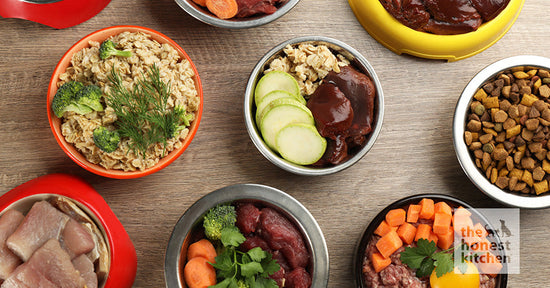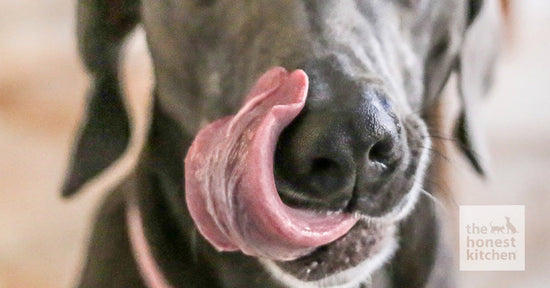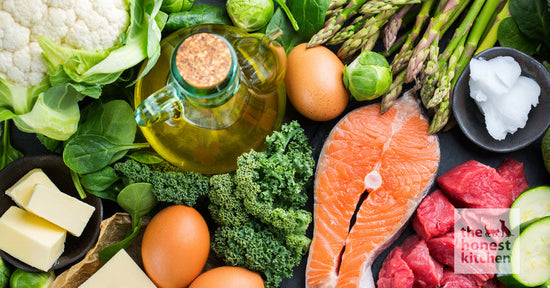Nourishing Your Lab: A Guide to the Best Dog Foods for Labrador Retrievers

In the world of dog breeds, there is a lot of variation in things like size, temperament, and lifespan, but something else often asked is whether certain breeds need a specific diet. While dietary needs don't vary too much per dog breed, there are some considerations that can be kept in mind.
Labrador retrievers may have some additional diet considerations than your average puppy. As labs age, other potential health problems that can occur include elbow dysplasia, arthritis, and obesity. In this article, we’ll explore the ins and outs of Labs’ health and what types of diets are best for a long, healthy life.
Important Nutrition Tips for Labrador Owners
To kick it off, let’s dive into overall nutritional recommendations for labs. As mentioned, bone and joint issues are common in labs (and many other large breed dogs), but a number one problem for labs is obesity. For this reason, it’s important to start labs off on a nutritious diet that will help maintain a healthy weight as early as possible to avoid them becoming overweight. Here are some tips you can implement to maintain your Labrador’s healthy weight.
Keep Their Diet Low in Carbs
Recent research by scientists at the Royal Veterinary College (RVC) in the U.K. uncovered that Labs are 1.6 times more likely to be obese than other dog breeds. Limiting carb intake is one way to maintain your dog’s healthy weight. It should be noted that dogs of all breeds need some carbs because they provide them vital energy to live a full life. However, too many carbs can be difficult for your pup to digest, thus putting pressure on their digestive system, leading to obesity, diabetes, and even cancer.
Typically no more than 20% of your dog’s diet should be carbohydrates, but that also depends on other factors such as your dog’s age, activity level, and other health conditions. Talk to your veterinarian to find out the most accurate amount of carbohydrates to feed your lab.
Look for Food Rich in Animal Protein
The power of protein in your Labrador’s diet cannot be overstated. Protein sources are vital to your dog’s healthy, balanced diet. Beyond providing energy to your pup, protein helps build and repair muscles and other body tissues, supports skin health and hair growth, and assists in creating hormones and enzymes that are necessary for your dog to function normally.
When choosing a food for your lab, be sure to look for foods that include high-quality, natural animal protein. Avoid processed meat products like chicken meal or turkey meal, as they aren't as nutritious as meat in its original form.
Clean animal proteins like chicken, turkey, eggs, and beef also have a ton of amino acids, which support the body functions mentioned above. But, similar to carbs, it’s important to feed your dog the correct amount of protein. Protein content should comprise a larger part of your pup’s diet than carbs, but too much protein will either be removed from your dog’s body through their urine or stored as fat.
Select a Food That's Moderate or Low in Fat
Fat often gets a bad reputation, but similarly to how it is an important part of the human diet, it is also essential in your Labrador’s diet. The Association of American Feed Control Officials (AAFCO) states that the minimum crude fat level for adult dogs is 5% and 8% for puppies. But generally speaking, you should keep your lab’s fat intake to a moderate or low level to avoid weight gain.
When it comes to fat in your dog’s diet, it’s essential to look for the “good” fat with ingredients like eggs, fish oils and flaxseed. Good fats contain triglycerides and fatty acids, which are great for your dog’s health. Triglycerides support dogs' energy and make food taste good. They also help the body absorb fat-soluble vitamins like A, D, E, and K. These vitamins help dogs build strong bones, teeth, and connective tissues.
Fatty acids, however, are only needed in small amounts but are vital to cell structure and function. When looking at dog food ingredient lists, watch for the following fatty acids: omega-6, omega-3, and docosahexaenoic acid (DHA). DHA is especially important for Lab puppies as it promotes brain and eye development.
Look for Food With a Low Calcium to Phosphorus Ratio
Most dogs need a balance of about 1:1 calcium to phosphorus in their diet. This is especially important for puppies who are still growing. Calcium is vital to healthy bone and joint development, but too much calcium can cause joint issues like OCD.
Phosphorus is also important for dogs to support healthy bones and teeth. Too much phosphorus, however, can contribute to issues with your dog’s liver and kidneys and even cause hyperphosphatemia.
Choose Food With a Lower Caloric Density
Since Labs are more at risk for bone and joint issues due to their larger size, it’s important to keep them at a healthy weight. Extra weight can exacerbate joint issues. Help ensure your dog maintains a healthy weight by feeding them the appropriate amount of calories per day. This can be done by either feeding your pup less, or by feeding them food that is higher in water and fiber.
Water and fiber will make your pup feel full without a ton of extra calories. Water and fiber are also great for their hydration levels and digestive system. Get guidance from your veterinarian on the appropriate amount of calories for your pet.
Best Food for Labs: The Honest Kitchen Recommended
Just like people, there are a lot of potential health issues that Labs can have. Still, one of the best ways you can help manage them is by feeding your pup a healthy diet that is loaded with quality ingredients, good fats, and real animal protein.
Human grade dog food is one of your best bets to ensure all three aspects are covered and ensure your dog loves the taste. Human grade dog food also doesn’t contain by-product meals or artificial colors or GMO ingredients. When it comes to human grade food options, The Honest Kitchen has some great choices that are well-balanced for labrador retrievers.
First, there is the Limited Ingredient Fish Dehydrated recipe. This dog food option has thoughtfully sourced white fish (no fish meal or meat meals) as the first ingredient, followed by organic coconut, flaxseed, chickpeas, pumpkin, celery, spinach, and all the necessary minerals needed to support your dog. This food is high in protein, moderate in fat and low in carbs, making it a great option to maintain a healthy weight.
Another great option is The Honest Kitchen’s Dehydrated Grain Free Beef recipe, another low carb, moderate fat & high protein recipe option that’s minimally processed, 100% human grade and highly delicious.
And if you’d like an added boost to support your dog’s hip and joint health, check out The Honest Kitchen’s Functional Chicken Stew Pour Over. This pour over is a tasty stew made with cage-free chicken simmered in bone broth reduction, carrots, and butternut squash. This topper can turn any dry food into a tasty treat that supports your dog’s wellness.
Try an Honest Kitchen Diet for Your Lab Today
Whether you’re the loving pet parent of a young dog or senior dog, you can count on The Honest Kitchen to provide a clean, supportive diet — without all of the preservatives, by-products, and fillers of feed-grade pet food brands.
Explore our numerous other high-quality dog food and supplement options that are great for labrador retrievers — and dogs of all shapes and sizes.
*Health Disclaimer: This post is educational in nature and doesn’t constitute health advice. Please consult your pet's veterinarian or other healthcare professional for specific guidance on this topic.





